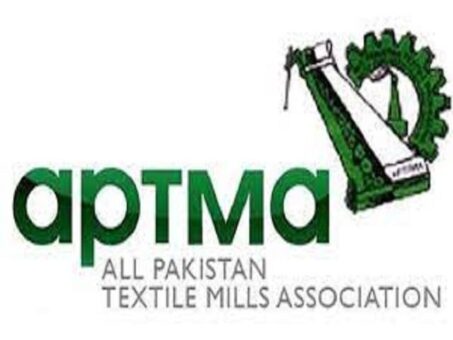KARACHI – The All Pakistan Textile Mills Association (APTMA) has strongly urged the federal government to immediately remove yarn and fabric from the Export Facilitation Scheme (EFS), warning that their continued inclusion is severely damaging Pakistan’s domestic textile industry and distorting market competition.
Speaking at a press conference held at APTMA House, Chairman Kamran Arshad highlighted the critical issue, stating that the inclusion of yarn and fabric under EFS allows importers to enjoy a duty-free and sales tax-free regime, while domestic producers are burdened with 18 percent sales tax on local inputs. This policy has created an uneven playing field, threatening the viability of local textile businesses.
APTMA’s stance is supported by the Pakistan Cotton Brokers Association (PCBA), Pakistan Cotton Ginners Association (PCGA), and other textile bodies. Present at the briefing were APTMA Southern Zone Chairman Naveed Ahmed, PCBA Chairman Khawaja Muhammad Zubair, Dr. Jassu Mal of PCGA, and several former APTMA officials, including Yasin Siddik and Asif Inam.
Kamran Arshad explained that although the FY25 budget withdrew sales tax exemption for local inputs under EFS, imports continue to enjoy zero rating. He noted that while sales tax on domestic inputs is refundable, the refund process is plagued by delays, high costs, and incomplete payments, disproportionately affecting small and medium enterprises (SMEs). Only 60–70 percent of refunds are ever issued, and many are stuck in outdated manual systems that haven’t improved in years.
As a result of these disparities, over 120 spinning mills and 800 ginning factories have closed down, with further closures of looms underway. Textile workers have begun protesting in Faisalabad, demanding immediate government attention.
According to APTMA, the import of cotton, yarn, and greige cloth jumped from $2.19 billion in FY24 to $3.64 billion in FY25, while export growth remained lower at $1.4 billion. This stark imbalance underlines the growing preference of exporters for imported raw materials—rendering local suppliers uncompetitive.
Kamran Arshad called the policy “anti-Pakistan,” saying it is draining the economy and undermining the entire textile value chain. He emphasized that APTMA has met with officials from the Finance Ministry, FBR, and even IMF representatives in efforts to restore zero-rating for local supplies. A high-level committee led by Minister Ahsan Iqbal was formed to negotiate with the IMF, but the meeting never took place.
APTMA continues to push for immediate correction of the policy to safeguard the future of Pakistan’s textile industry.
